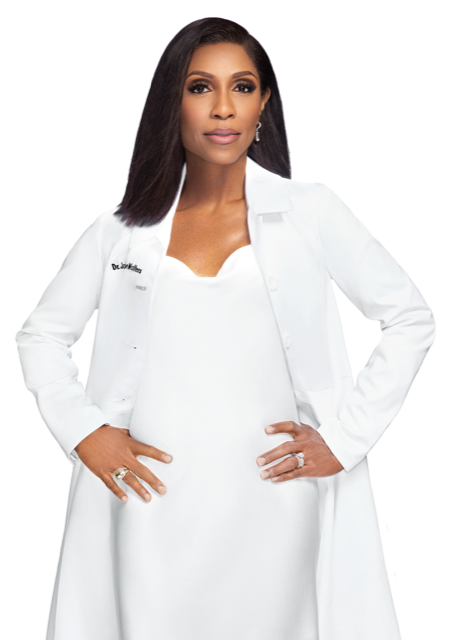
Source: Courtesy of Dr. Jackie Walters / Sponsored by Hologic
When was the last time you prioritized a trip to the doctor?
If you’re honest, it probably has been a while. During the pandemic, it can feel like an appointment that can wait or that a telehealth visit can figure out, but according to Dr. Jackie Walters, famous Atlanta-based OB-GYN, Married to Medicine star and two-time breast cancer survivor, we can no longer stall on trips to the doctor. When we do, the necessary tests and examinations we need end up falling by the wayside, increasing the risk of more harrowing diagnoses. One of those screenings is a pap smear and co-testing for HPV to identify abnormalities in the cervix. It’s currently Cervical Cancer Awareness Month, and considering that mortality rates for Black women for the disease are much higher than that of white women, we shouldn’t procrastinate to get our visits lined up, even while facing COVID.
“Cervical cancer can happen to anybody, but African-American women are more affected than any other racial ethnic group and we are two times likely to die,” Dr. Jackie told MadameNoire over the phone. “There have definitely been theories, whether it’s racial disparity, access to healthcare, the lack of healthcare, we’re not really sure what’s happening. Nobody’s found any particular genetic reasons that we’re more affected, but definitely, two times more likely to die is an alarming number for us.”
So we all need to be getting tested in one way or another. According to Dr. Jackie, early detection is your best protection. While women should have started getting pap tests at 21, from your mid-20s through your 30s, the tests become even more important.
“Women ages 21 to 29, pap testing is crucial,” she says. “Women over the age of 30 should not only have pap tests but have co-testing in that they’re getting pap tests and HPV. The pap test will detect if there are any cellular abnormalities on the cervix, while HPV will pick up those strains that could potentially lead to developing cervical cancer. And the good news is, you only have to go in one time: One sample, two tests, which will detect nearly all of the cervical cancers.”
When it comes to HPV screenings, statistics have shown that 70 percent of cervical cancers are found to be caused by HPV types 16 and 18. But Dr. Jackie doesn’t believe in getting hung up on the specifics. She says it’s most important to get in to see your doctor annually to get ahead of all of it. When you do go, make sure you’re advocating for yourself and asking for what you need instead of relying on the doctor to tell you whether or not you should get co-testing.
“Ask for your screening test. You’re your own best advocate, so make sure you’re asking for the screening test that’s comprehensive to your age,” she says when speaking on the importance of going in informed so you can tell the doctor what’s going on and what you think is necessary.
“My advice to women, especially African-American women since we’re impacted more, is to go into your doctor, even if you need to close your eyes and pretend you’re talking to a good girlfriend, the key here is to be open, to be honest, and to be transparent,” she added. “Tell us all of it. You’re not going to get judged. You want to make sure you’re talking about all of your health concerns, your health issues, make sure you’re talking about your body. Advocate for yourself. Ask for testing. Make sure you’re requesting your pap test annually and going in requesting pap tests and co-testing when over the age of 30.”
As for concerns about whether or not it’s safe to be in hospitals and clinics while the country is in the throes of the coronavirus in order to get tested, Dr. Jackie says you’re safe. Every step and precaution is being taken by medical professionals to protect patients from exposure. So if you’ve been sitting on making those plans for that appointment, you can get up and get proactive.
“The benefit of going in now is it would definitely be a bad time to have cervical cancer,” she says. “So go into your doctor and make sure you’re getting screened for a disease process that is preventable and treatable. Don’t let the pandemic keep you from going to the doctor anymore because we’re taking all the steps to protect you.”
In regards to protecting your daughters or getting them to take preventative measures against a disease like cervical cancer, Dr. Jackie recommends the HPV vaccine, which “I believe it’s 9 to 26” years of age that you can obtain it. But even if you were able to get your vaccine younger, or your child was able to, everyone needs to make sure they’re going in for testing. That includes the misinformed individuals who believe that they’re in the clear because they’re young and assume a diagnosis like cervical cancer only happens later in life.
“It is a total misconception that as a young woman over 30, that you could not get cervical cancer,” Dr. Jackie says. “I’ve been doing this for 24 years and I have definitely seen women ages 30, 35, 40 with cervical cancer. So never believe that because you’re younger that you’re — you’re less likely, but not absolutely not going to get cervical cancer.”
She adds, “Never believe that age is a factor that would eliminate your chances of being diagnosed with cervical cancer.”
If you need more information, visit hologic.com/wellwoman to learn more about the importance of getting screened now.

